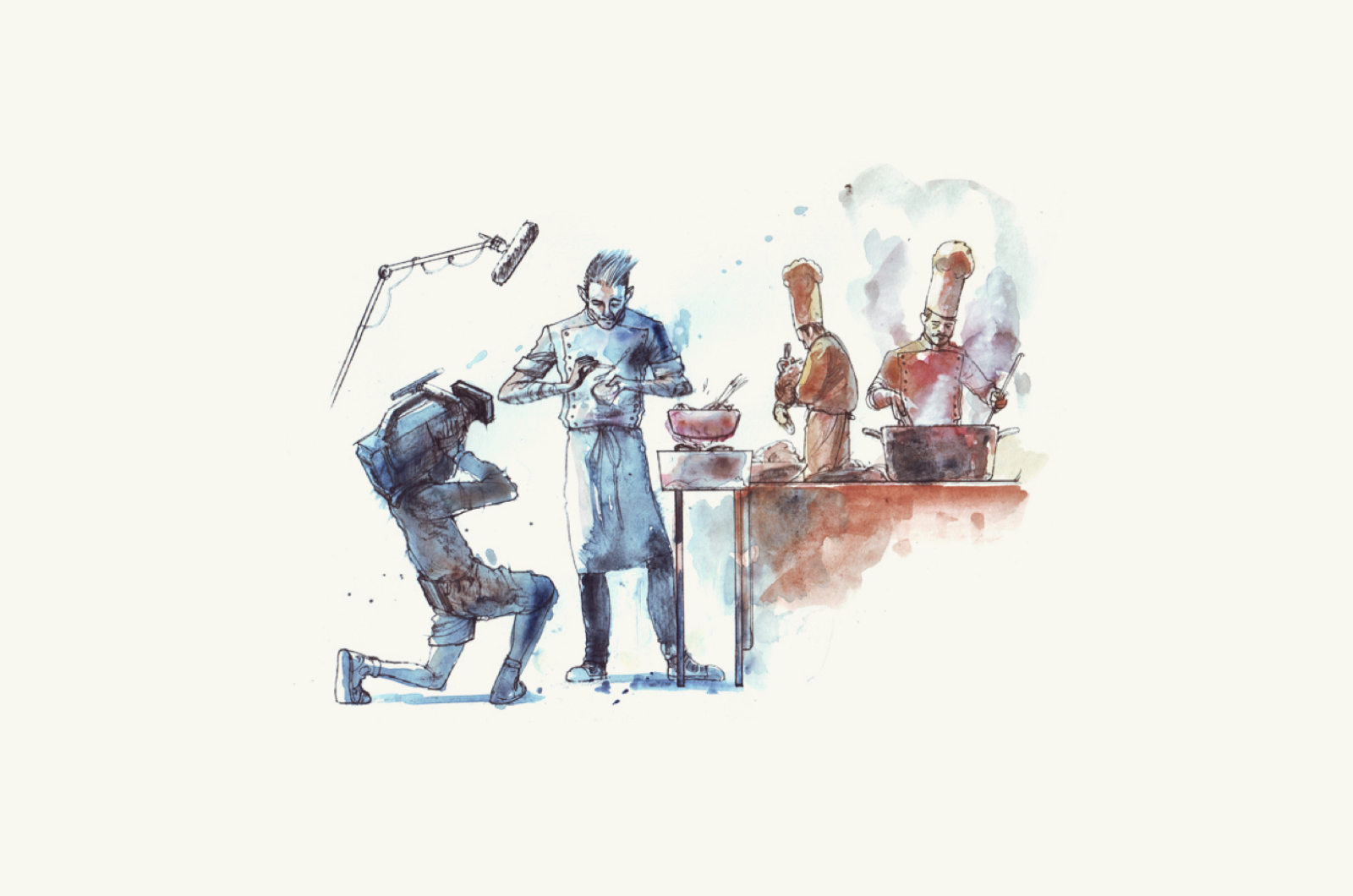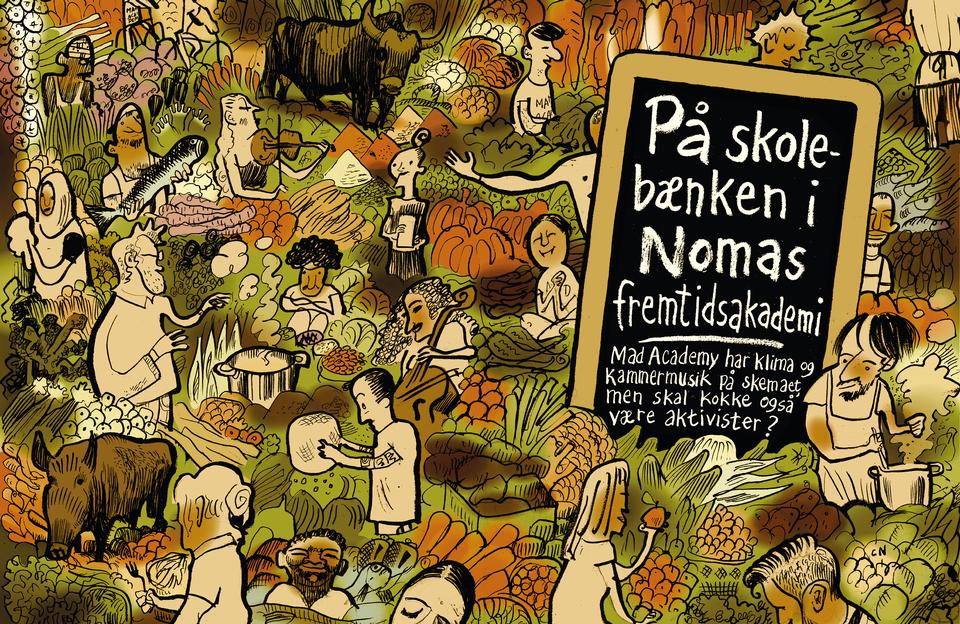Alex Atala brings Brazil together to discuss food
FRUTO promised “dialogues on food” and it delivered. Organized by Brazilian chef Alex Atala, cultural manager Felipe Ribenboim, and Atala’s ATÁ Institute, the symposium, that took place in São Paulo during January 26-27, brought together anthropologists, geneticists, farmers, environmentalists and even a neuroscientist for a free-wheeling conversation about how and what we eat today.
The seminar’s speakers addressed a variety of topics but all of them circled around a single, critical question: how do we ensure that people around the globe have access to more fair, good, and clean food in the future? Especially when we know, thanks to UN estimates, that the world’s population will reach 9 billion by 2050? It was a difficult assignment for the 32 experts who took the stage during the symposium’s two days, but each brought a valuable contribution to the debate.
How to feed an entire planet?
Several panels focused on hunger, one of the symposium’s main themes. David Lehrer explained how his collective farm, Kibbutz Ketura, grows food under some of the most adverse and extreme conditions in the world. Located between the Dead and Red Seas, where rainfall is minimal and temperatures routinely soar, Ketura draws on cultivation methods developed by Israeli kibbutzim to solve the difficult climatic conditions. He has introduced the cultivation model for Jaffa oranges and Israeli wines (increasingly present on menus around the world) as ways to circumvent climatic conditions and seek solutions – like the seawater desalination and drip irrigation.“The future of agriculture,” he promised, “will be more smart and sustainable.”
Ria Hulsman, from Wageningen University, turned to cities to consider some viable solutions to the challenge of feeding the growing population. “We will need to increase food production by optimizing the natural resources we have, like water and nutrients, since we will not have other places to take them from,” she said. She discussed solutions like vertical agriculture, which will allow us to cultivate a kilogram of tomato with only four liters of water (as opposed to the 60 liters needed in conventional agriculture), and the acceleration of photosynthesis in plants using artificial lights. “We will create new ways to cultivate food without the necessity of sunlight, and which will be more and more that is ‘free from the soil,’” she added.
Isadora Ferreira, from the Centre of Excellence against Hunger of the United Nations World Food Programme, said that the main cause of hunger (which affects 815 million people around the world) is not supply—the world currently produces enough food to feed everyone on the planet—but lack of access. She presented UN studies that convincingly show the important role that school lunch can play in fighting hunger. According to data collected by the institution, school lunches ensure minimal nutrition for children, who are the worst victims of malnutrition, and improve education and health.
Tied to the land
A pioneer of syntropic farming (a fascinating way to reconcile agricultural production with the restoration of degraded areas), Ernest Götch built a biodiverse farm in the interior of Bahia by replicating nature’s logic, planting new species, and allowing the balance to be restored gradually. Today, he grows one of the best cacaos in Brazil—exported to make some of the finest chocolates in the world—in a forest where he has lived since arriving from Switzerland in the 1980s. He spoke passionately of nature’s structure. “Each organism appears in the world equipped to fulfill a specific task, and the only law that governs us is that of symbiosis cooperation.”
The need to improve our relationship with the land also featured in Ron Finley’s talk. An activist and self-described “gangsta gardener” Finley, who spoke at MAD in 2014, has revolutionized California’s urban communities by fostering small-scale agriculture in the inner city. “Farming is all about people, is about relating to the land where we live, from where we take our food,” he said. “Planting our own food is the biggest food revolution we can have. To forget how to dig the earth and tend the soil is to forget ourselves.”
Slow Food founder Carlo Petrini picked up the same thread, arguing that discussions about gastronomy should center on the product and the field as much as on recipes and techniques. “Focusing on dishes alone is food pornography,” he said. As people come to understand this relationship better, he contended, we will no longer be willing to leave our food solely on the hands of large corporations and will understand that we have the right to choose what we eat. “We have to stop using ‘consumers’ when we talk about food,” he said. “We are all ‘co-producers.’”
The long journey of the fish
French documentary filmmaker and leading conservationist Celine Cousteau called for more monitoring on ships and said that one of the main problems of fishing in the world today is bycatch. “How much does our food cost us?” she asked. “Seafood supply chains have become long and more complex, and when a fish appears on your plate, it is the last stop of what may have been a very long journey.” Cousteau presented some solutions she has seen around the world on her sea explorations, like a device that prevents larger marine creatures like turtles, sharks, and even big fish from entering nets, curbing bycatch.
She also emphasized the need for policies that prevent slave labor on fishing boats and protect human rights in an industry that provides living many families around the world. “The food we eat needs to take into account all costs: financial, social, human, environmental. We can no longer continue eating without taking all that into account.”
Cooking made us human
According to Vanderbilt University neuroscientist Suzana Herculano, cooking transformed human evolution, diet, and culture. The human brain uses more energy than that of any other animal, and cooking’ which makes digestion easier, made the nutrients in food more readily available. Unlike other primates, which can spend nine hours a day eating, humans, once they developed cooking, needed only two. That left free time to focus our brains on other things, like developing language and communication.




